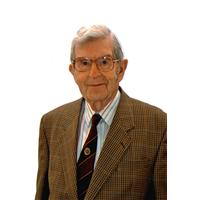Bali: Medical breakthroughs hold out the prospect of living longer and healthier lives, with current life span norms set to be turned on their head, according to anti-ageing experts.
“Life begins at 100? This is an unthinkable today, but in the future, 100 can be pretty young,” Robert M. Goldman, chairman of the American Academy of Anti-Ageing Medicine, told a conference on the resort island of Bali.
Stem cells, nanotechnology, genetic engineering and therapeutic cloning are being used in the relatively new field of anti-ageing medicine.
Goldman instanced a calendar with naked pictures of actress Sophia Loren at the age of 71 wearing only a pair of earrings underlined how perceptions of age had changed.
“If somebody told you 14 years ago that they were going to have a former sex symbol pose in earrings only, you would have been disgusted or you would have closed your eyes,” he said. “Today she looks great at the age of 71.”
Stem cell therapy will allow people to regain lost hair, remove wrinkles by renewing skins, and grow new nerves for paralysed patients, Michael Klentze, director of the Klentze Institute of Anti-Ageing in Munich, Germany, told Reuters.
Stem cells have the ability to act as a repair system for the body, because they can divide and differentiate, replenishing other cells as long as the host organism is alive.
“People who have hair loss they can hope in the next months they’ve got new hair, not strange hair, but their own hair,” he said.
He said a new method called proteomic diagnostics could detect prostate cancer through a urine test years before regular scans discovered it.
“We can stop the progress of a prostate cancer and we don’t need a biopsy or anything else. No operation, no nothing.”
He said people had different risk factors depending on gene mutations inherited from their ancestors and if these factors were identified and measured correctly, people could expect to live longer and healthier.
“If you measure these very exactly, then you know very early you should change your lifestyle. But it is very important not to start this when you’re 85 years, but start at 40 or 45,” he said.
Klentze disputed, however, Goldman’s concept of life beginning at 100.
“There’s a limit to how long you can live. It’s not possible and it’s not what we want. We want a normal life, 85 or whatever but healthy,” he said.
“US males are more into life extension, they’re talking about life extension, living 150 years. For the Europeans, it’s more live a good life, vital and healthy.”
Both these experts will speak at Anti-Ageing London, a conference held at the Royal College of Physicians in Wimpole Street London from 15-17 September – for more information go to www.antiageingconference.com
 According to research undertaken by M & S, 14 million of us started a new year diet this week. However, for most of us this will end by mid-february.
According to research undertaken by M & S, 14 million of us started a new year diet this week. However, for most of us this will end by mid-february. 



